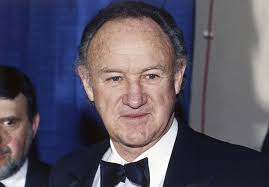
Gene Hackman, the prolific Oscar-winning actor whose studied portraits ranged from reluctant heroes to conniving villains and made him one of the industry’s most respected and honored performers, has been found dead along with his wife at their home. He was 95.
Hackman was a frequent and versatile presence on screen from the 1960s until his retirement. His dozens of films included the Academy Award favorites “The French Connection” and “Unforgiven,” a breakout performance in “Bonnie and Clyde,” a classic bit of farce in “Young Frankenstein,” a turn as the comic book villain Lex Luthor in “Superman” and the title character in Wes Anderson’s 2001 “The Royal Tenenbaums.”
He seemed capable of any kind of role — whether an uptight buffoon in “Birdcage,” a college coach finding redemption in the sentimental favorite “Hoosiers” or a secretive surveillance expert in Francis Ford Coppola’s Watergate-era release “The Conversation.”
“Gene Hackman a great actor, inspiring and magnificent in his work and complexity,” Coppola said on Instagram. “I mourn his loss, and celebrate his existence and contribution.”
Although self-effacing and unfashionable, Hackman held special status within Hollywood — heir to Spencer Tracy as an everyman, actor’s actor, curmudgeon and reluctant celebrity. He embodied the ethos of doing his job, doing it very well, and letting others worry about his image. Beyond the obligatory appearances at awards ceremonies, he was rarely seen on the social circuit and made no secret of his disdain for the business side of show business.



